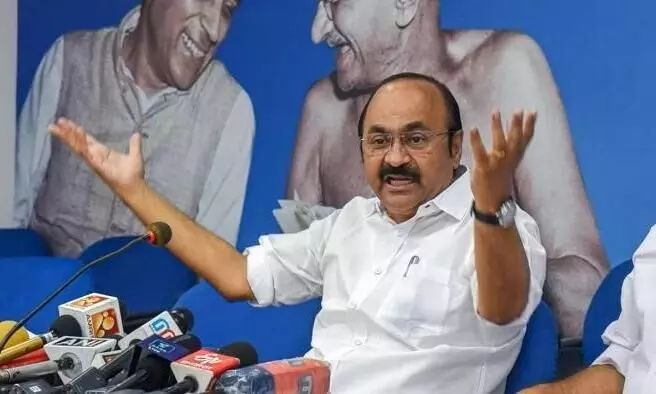
Modi-style legislative enactments: UDF on Kerala Govt’s passing delimitation bills
text_fieldsThe Kerala government's swift passage of crucial delimitation bills has sparked a firestorm of controversy, raising serious concerns over democratic practices and opposition oversight. The bills, aimed at restructuring local body wards based on outdated census data from 2011, were hurriedly pushed through the assembly amidst protests and accusations of legislative high-handedness.
The opposition, led by the United Democratic Front (UDF), has vehemently criticized the Communist Party of India (Marxist)-led government's actions as reminiscent of authoritarian tactics, alleging a deliberate effort to stifle dissent and bypass crucial parliamentary scrutiny.
The bills, namely the Kerala Municipality (Second Amendment) Bill and the Kerala Panchayat Raj (Second Amendment) Bill, aim to increase the number of wards in local bodies across the state, purportedly better to reflect population changes since the last delimitation exercise.
However, what has drawn the most ire from opposition members is the manner in which these bills were enacted. Without the customary referral to a subject committee for detailed examination and amidst ongoing uproar over an alleged bribery scandal, the government orchestrated a rapid passage of the bills in just under five minutes.
This move, critics argue, not only sidelined meaningful debate but also undermined the fundamental principles of participatory democracy.
The Kerala assembly, known for its robust debate and participatory governance, now finds itself embroiled in a controversy that threatens to tarnish its reputation as a model for grassroots democracy. The opposition's accusations of 'Modi style legislative enactments' and comparisons to controversial federal practices highlight growing discontent with perceived attempts to marginalize dissenting voices.
Moreover, concerns over the use of outdated census data have further fuelled the controversy. Critics argue that basing delimitation on 2011 census figures, while the 2021 census data is forthcoming, raises questions about the government's commitment to accuracy and transparency in electoral processes.
The decision to proceed without waiting for updated demographic information has been viewed as a deliberate manoeuvre to consolidate political advantage ahead of the upcoming 2025 local body elections.
The episode underscores broader implications for democratic norms and legislative integrity. By sidestepping established procedures and minimizing opposition input, the government risks eroding public trust and institutional credibility. It has sparked calls for a re-evaluation of legislative practices to ensure robust checks and balances that uphold the principles of transparency and accountability.
In response, the opposition has vowed to intensify their scrutiny and mobilize public opinion against what they perceive as an encroachment on democratic values. They argue that while the focus on pressing issues such as the alleged bribery scandal is crucial, it must not come at the expense of substantive legislative oversight.























